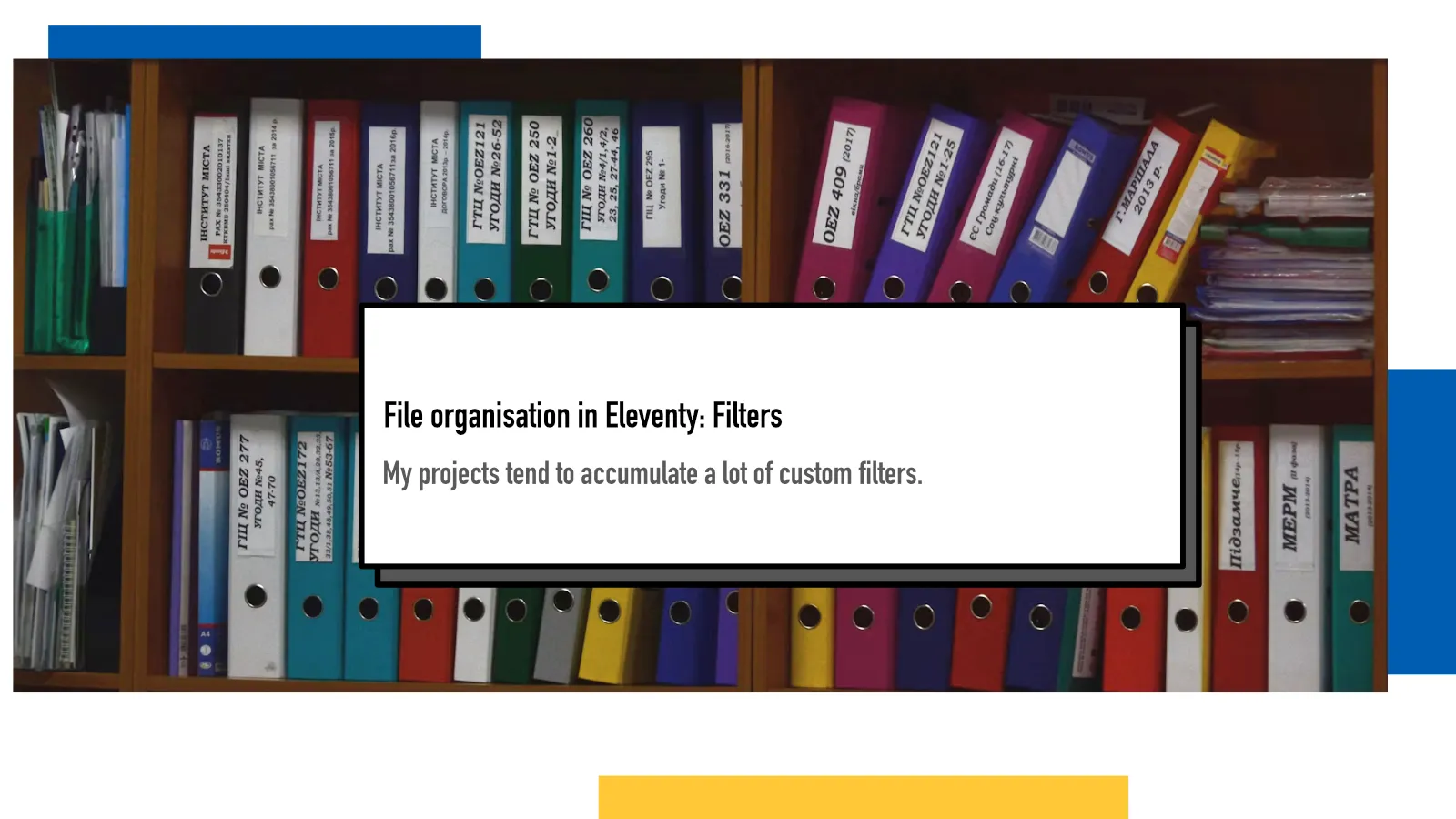File organisation in Eleventy: Filters

Filters are a handy feature in Eleventy that allows you to run functions on input from templates.
A filter is a function which can be used within templating syntax to transform data into a more presentable format. Filters are typically designed to be chained, so that the value returned from one filter is piped into the next filter.
They are used with a pipe character (|)
from templates like in the documentation example:
<h1>{{ name | makeUppercase }}</h1>
Here, name is a variable that contains
some value and makeUppercase is a filter
it is passed to.
To create a filter, you call
addFilter method in your configuration:
export default function(eleventyConfig) {
eleventyConfig.addFilter("makeUppercase", function(value) {
return value.toUpperCase()
});
});When you have one or two filters, they live comfortably in the main function but due to their usefulness, I tend to accumulate a large collection over time. They are handy small utility functions so it’s easy to create one for any use case.
Here’s how I organise my filters:
I have a _11ty/ folder for all sorts of
scripts that I use to run my Eleventy project. There, I create a
filters.js file that contains all my
filters and export them.
Here’s an example of a small project I started recently
function ongoing(isOngoing) {
return isOngoing ? "ongoing" : "finished";
}
function finishedSeries(series) {
return series.filter((serie) => !serie.ongoing).length || 0;
}
export default { ongoing, finishedSeries };The function name matches the filter name exactly here so that I can in my config file then do this
import filters from './11ty/filters.js'
export default function(eleventyConfig) {
Object.entries(filters).forEach(([name, callback]) => {
eleventyConfig.addFilter(name, callback);
});
});This will go through all the filters and register them with the function name as filter name and the function callback as the function.
I don’t have to remember the syntax of
addFilter anymore and I can keep all of
my filters in one place. That’s handy when I need to debug a misbehaving
filter or add a new filter. Everything is tidily in one place.
If something above resonated with you, let's start a discussion about it! Email me at juhamattisantala at gmail dot com and share your thoughts. This year, I want to have more deeper discussions with people from around the world and I'd love if you'd be part of that.